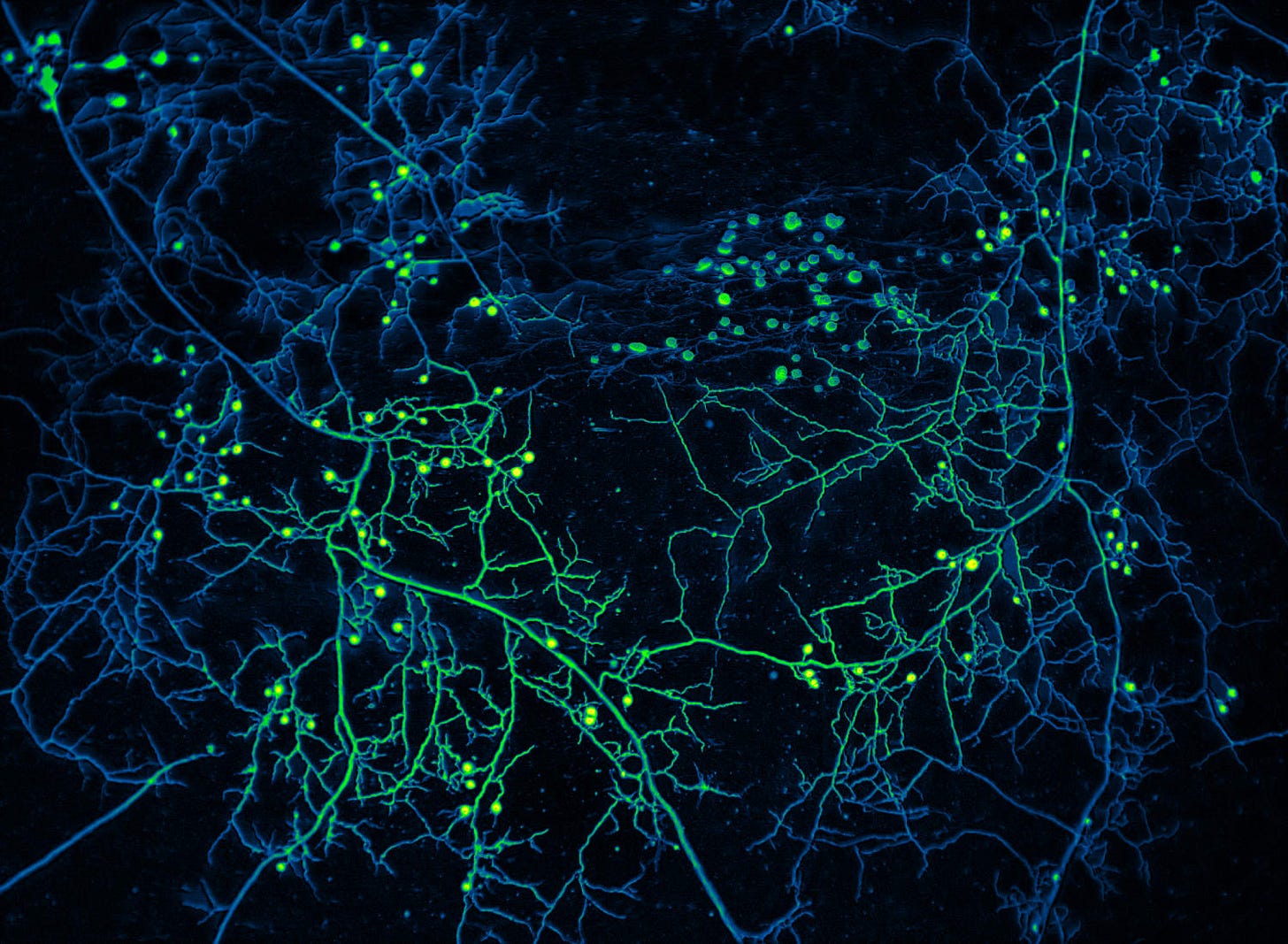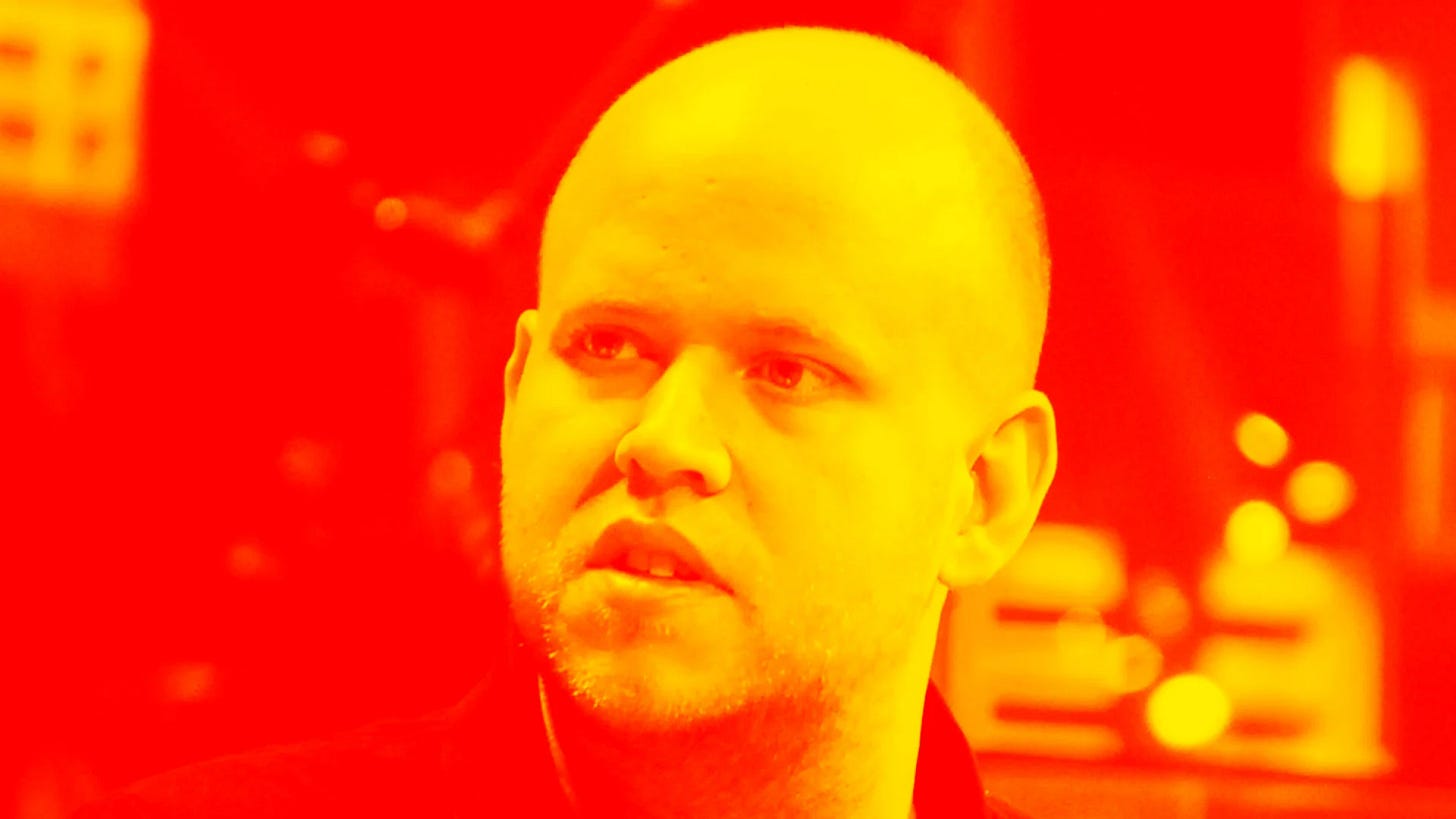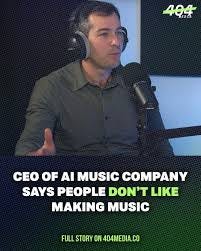Building a New Ecosystem
Is a another world possible? We're exploring ways to build a new music platform. We'd love for you to get involved. A call to arms! but first, a simple 5 min questionnaire :)
Fill the questionnaire HERE
It seems like there is a new wave of push back against Spotify and the dominance of the streaming platform model as the main means we have to listen to the music we love.
Last week, Bjørk slated Spotify as being "probably the worst thing that has happened to musicians".
Then, there was this Substack article detailing how Spotify is gaming its own platform with the use of ‘fake artists’. It therefore seems like good timing for the news of Liz Pelly’s new book - ‘The Mood Machine’, in which she talks to ex-employees who reveal secrets about the inner workings on the Spotify Model, the proliferation of fake artists ensuring millions in streaming revenue isn’t going to real artists and more. Then there’s the discontent brewing on the vast wealth that Spotify founder Daniel Ek has amassed whilst artists on the platform struggle to make ends meet.
Ek showed just how out of touch he is when he revealed his thoughts on the current vast volume of music being created and how the cost to do so is ‘close to zero’.
As I revealed in my previous article of Self-Releasing Music, the relative cost to make music is far from zero, but I suppose when you are worth $4.8billion like Ek, most sums of money (including the £15k I spent on my last album) are as close to zero as one can imagine.
This is, of course, in the context of the same Daniel Ek admonishsing ‘lazy’ artists a few years ago who don’t make enough music - his recommendation for artists to ensure “continuous engagement” with their fans by continuously releasing ‘content’. This obviously flies in the face of the classic 2/3 year album release cycle and shows how oblivious he is to the creative processes, where a large investment of time is often required by artists to ensure they make their best work.
It is obvious that in Ek’s world, songs are merely ‘content’ that his platform can monetise for his personal benefit. For Ek, artists as merely bottom-of-the-food-chain worker bees chained to the production line of their personal music content creation factories. Henry Ford, eat your heart out.
Others are putting their foot in it too. Take Mikey Shulman CEO of AI music start-up Suno, which has raised over $125m and delivers AI based music made to order in seconds (closer to zero!). Mikey got caught red-handed in an interview where he stated his views on music making:
“It’s not really enjoyable to make music now… it takes a lot of time, it takes a lot of practice, you have to get really good at an instrument or really good at a piece of production software. I think the majority of people don’t enjoy the majority of time they spend making music.”
Mikey has obviously not been reading A State Of Flo! The enjoyable part of making music IS IN THE CREATIVE PROCESS. The release plan, whether it brings in fame, glory, oodles of cash or not is secondary to the joy of music making for many of us.
Music’s dystopian future has been unveiled: and just like the social media barons in charge of the information landscape, it is an industry seemingly run by a bunch of mega-rich tech-bro types who’s mission is to exploit a creative artform that we are all so passionate about. Ca-Ching.
So, what can be done?
As I’ve mentioned a few times already on this Substack: with my limited resources I’m exploring new ideas which will help us to build an alternative platform for releasing music on the label, away from the big streaming platforms. As explained above, I think the current music platforms fail to serve independent labels such as A State Of Flo and undervalue the listening experience for you, as a musically-curious listener.
In the process, I want to explore ways in which a platform powered by the label can help listeners interact better with the music, tapping into the burgeoning ‘creator economy’, not ignoring the purity of the traditional music models but not being too nostalgic about them either, and exploring ways we can use technologies to access the ‘flow states’ that I believe to be fundamental to enjoyment of music from both a creator and listener perspective.
By combining music we love, a novel music ecosystem and the science behind the power of music, I hope we can dig deeper into some of the topics I’ve touched on this past year - the biological basis for music, the drone contiuum, states consciousness and music etc - and perhaps in the process we’ll be able to find new ways for listeners to find renewed joy in the pure pleasure of Patient Listening.
If we get it right, we can present a new ecosystem that uses new technology for the good for both artists on the label and our small band of listeners i.e. you.
To be able to do this we need your help!
This is the start of a process for us and your insights are invaluable. We’d deeply appreciate it if you could take 5–10 minutes to answer a few questions. Your feedback will play a key role in shaping this project.
Fill the questionnaire HERE
If you’d like to chat and discuss ideas - email me brian @ astateofflo .com or put your comment below! Share with anyone you think might be interested. Let’s discuss!







I'm not entirely convinced that a new platform is going to change anything — not in our lifetimes anyway. The slow, long-form game of commodifying of music, art, and other creative outlets is what has "destroyed" the arts (or more accurately, distorting our perspectives on the arts). Noticing that Spotify is the problem is like being a passenger on the Titanic and looking at the iceberg as being the problem, when in reality there were numerous decisions made along the way that led to the inevitable sinking of the ship.
Metaphorically the iceberg arose out of an extremely interconnected and complex set of circumstances — between the greed of commercial empires and our insatiable hunger for more as consumers, we all contributed to this reality, a reality that cannot so easily be undone. At our core we have an unquenchable thirst for more things, more possessions, more entertainment rooted from an evolutionary desire for comfort and an aversion to suffering (even suffering boredom). Big businesses with deep pockets take advantage of that primal desire for more and further manipulate us into buying things we don't need, subscriptions to keep us distracted, and divisive environments to keep the illusion of an "enemy", an "other" on the other side of that wall.
I think if a "solution" is to be found to the arts epidemic we find ourselves in, it's not going to be found in one more invention, one more system, one more plan. Counter-intuitively, I am inclined to think that the solution is less — to want less, desire less, embrace simplicity, and have a much more broad and honest perspective on how our consumerism (and at its root, desire) is at the heart of the problem.
As consumers, we want more music for less. We want cheap entertainment. We will pay handily to not be bored, to not have to sit alone with our thoughts for more than 60 seconds. Corporations know this, and out of that has arisen our current consumerist landscape of endless apps, endless options for music and other forms of entertainment, and other possibilities to satiate us in our boredom.
As musicians and artists, I am inclined to think that we've forgotten about that flow state, about the joy of creating as being the reward, valuing the process over the results. We've grafted into the arts numerous capitalist concepts, corporate values, and have pandered to the whims and shifting sands of consumerist mindsets. And it's all entirely unnecessary.
If you're looking for a solution to the problem we've created collectively, go lock yourself in a room by yourself — paint, draw, make the music you like or want to hear, make beautiful handcrafted things that bring you delight — and revel in the joy of making, of simply creating. There's no system needed. There's no need for metrics, or popularity, or chasing after inclusion in some arbitrary playlist that someone else put together. There's no need for chasing after the affection, validation, and admiration **of complete strangers**. Your joy and your peace comes from the simple act of being and doing.
So just some grist for the mill — there are plenty of people with opinions that would suggest otherwise, but I can't help but ask the question "why do we need more _______? How about less? Can we be happy, content, fulfilled with less?" And the answer, at least found in my experience, is a resounding _YES_.
Love this idea. Filling in form now!